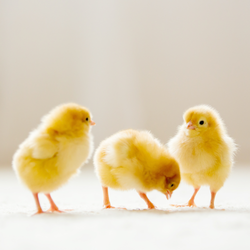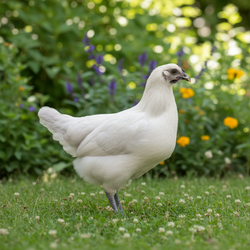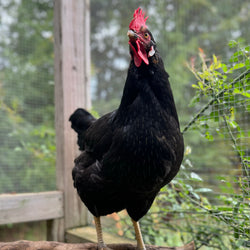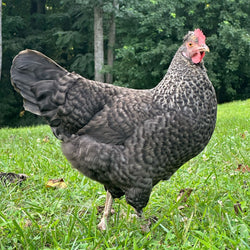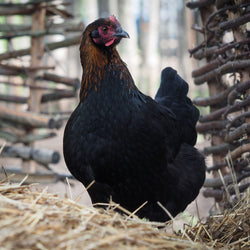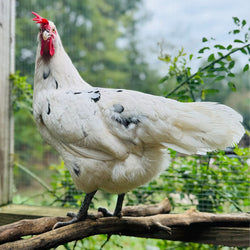f=menu&page=3/--
Frequently Asked Questions
Here we answer the most commonly-asked questions about ordering, chicken care, and more.
Will My Live Poultry Order Include a Heat Pack?
The decision to include a heat pack in poultry orders is made by our expert shipping department on the day of your shipment. We consider various factors such as the quantity of chicks, destination, and weather conditions.If your order includes a heat pack, you can usually locate it beneath the bedding in a brown paper bag marked for identification. Please note that the heat pack is non-reusable and is not meant to be given to the chicks as food. Can I request or pay for an extra heat pack in my package? No, we cannot accept this request. Our expert...
Read MoreHow to care for baby quail: A comprehensive guide
Keeping and raising baby quail can be a rewarding and enjoyable experience. These small, fascinating birds are not only adorable but also relatively easy to care for. However, they do require specific attention and care during their early stages of life. Here is the information you need learn how to care for baby quail, ensuring their health, well-being, and successful growth. Setting up the brooder: Before bringing home baby quail, it's essential to set up a suitable brooder. A brooder is a controlled environment that mimics the natural warmth and protection provided by a mother quail. Therefore to mimic a...
Read MoreHow Long Does it Take a Chicken to Lay an Egg?
There's a certain magic in the act of collecting a freshly laid egg from your backyard coop—a tangible connection to the rhythms of nature and the reward of your nurturing efforts. But have you ever paused to consider the intricate journey that transforms a simple yolk into a fully formed egg? How Long Does it take to Lay an Egg? This whole process of egg laying from yolk to coop takes around 26 hours. As you savor the flavors of a meal made with your own homegrown eggs, take a moment to reflect on the incredible journey behind each bite. The...
Read MoreHow Many Eggs per Day Does a Chicken Lay?
A female chicken can lay up to one egg per day. It is important to note that a hen will not always lay one per day, since we all need some time off! Proper care, including a nutritious diet, and a comfortable living environment, can help ensure that your chickens reach their laying potential. How Long Does it take for a Hen to Produce and Egg? The process of egg formation in a chicken typically takes approximately 24 to 26 hours from the time a hen lays one egg until she lays the next one. Here's a basic breakdown of...
Read MoreWhat are Scaly Leg Mites in Chickens?
Are your chicken's legs looking rough and they can't seem to stop scratching? They could be suffering from a scaly leg mite infestation. These minuscule parasites, known scientifically as Knemidocoptes mutans, burrow under a chicken's leg scales and can cause some serious discomfort and potential health risks if not treated. Scaly leg mites, quite literally, take up residence under the scales on a chicken's legs and feet. Once settled, they feast upon the keratin present in these scales, causing them to lift and detach from the skin. This infestation triggers various symptoms in your chicken, including constant itching, swelling, and...
Read MoreWhen Do Chickens Molt?
Chicken molting is a natural process that occurs in the late summer or early fall. As backyard chicken keepers, it's important to understand the molting phase in a chickens life in order to offer the best support. The Timing of Chicken Molting Molting, often referred to as a "chicken's bad hair day," is the process of shedding and regrowing feathers. This cyclical event is triggered by a combination of factors, mainly the change in daylight hours and the chicken's age. Typically chickens undergo their first molt at around 18 months of age, depending on the time of year that they...
Read MoreWhat is a Chicken Saddle?
A chicken saddle is also known as a chicken apron, feather gaurd or hen saver. It's a protective covering placed on a chicken's back, typically made of durable and lightweight materials, such as fabric or vinyl. The chicken saddle protects a hen's back and tail feathers from damage or injury. In some chicken flocks, hens can experience feather loss or injuries on their backs due to excessive rooster mating. During mating, roosters' sharp claws may grip onto hens' backs, causing feather damage or bare spots on their skin. Additionally, other hens might peck at her back out of curiosity or...
Read MoreHeat Acidosis/ Heat Stress in Chickens: Symptoms, Treatment, and Prevention
Recognizing Heat Stress and Acidosis in Chickens Summer is in full swing with extreme heat waves sweeping the country. While chickens and other poultry manage heat well these scorching temperatures can lead to heat stress. It's critical for those caring for poultry, such as chickens, to identify the telltale signs of heat stress. Heat stress in chickens can be quite serious, leading to a condition known as heat acidosis. This is a stress-induced condition where chickens can’t regulate their body temperature due to the high temperatures. If heat stress isn't prevented, it can lead to significant impacts on your chickens...
Read More







"The Clubhouse" Coop
Easy to assemble and built to last, the Clubhouse Coop is the perfect starter coop for a small flock.

